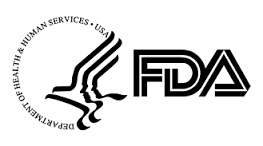FDA: Ventilator death, injury reports lower than initially reported

Editor's Note: Problems with Philips’ BiPap V30, BiPAP A30, BiPAP A40 ventilators resulted in only 7 recorded deaths and 10 injuries—far fewer than the 65 deaths and 952 injuries initially reported by the US Food and Drug Administration (FDA). In a July 10 update to the class 1 recall—the most…
FDA announces Class 1 recalls for ventilator software, electrode pads

Editor's Note The US Food and Drug Administration (FDA) has classified recalls by Hamilton Medical and Megadyne as Class 1 events, the most severe category indicating risk of serious injury or death. According to the agency’s July 11 report, Hamilton Medical is correcting software for its HAMILTON-C6 Medical Ventilator to…
FDA announces Class 1 recalls for upper airway stimulation system, MRI components

Editor's Note A manufacturing defect in a critical component of an upper airway stimulation (UAS) system and coils prone to overheating during magnetic resonance imaging scans (MRIs) prompted The US Food & Drug administration to issue two Class 1 recalls June 8. Class 1 is the most severe category, indicating…
FDA issues Class 1 recalls for two ventilator models

Editor's Note Alarm failures and missing details in instructional materials prompted the US Food and Drug Administration (FDA) to issue class 1 recalls—the most severe category indicating risk of serious injury or death—for two different ventilator models on June 27. According to the report, failure in the Ventilator Inoperative alarm…
FDA announces Class 1 recalls for patient return electrodes, intra-aortic balloon catheters, anesthesia systems

Editor's Note The US Food & Drug Administration (FDA) has announced Class 1 recalls—the most severe category, indicating risk of serious injury or death—for three products: MEGA SOFT Pediatric Patient Return Electrodes from Megadyne, Vaporizer Sevoflurane Maquet Filling from Getinge; and Arrow FiberOptix Intra-Aortic Balloon Catheter Kit and Arrow UltraFlex…
Endotracheal tube component failures prompt FDA Class I recall

Editor's Note The US Food & Drug Administration has designated Medline Industries’ recall of the Sub-G Endotracheal Tube with Subglottic Suction, which is used to keep a patients’ airway open, as a class 1, the most severe category indicating risk of serious injury or death. According to the agency’s June…
FDA designates Class I recall for neurosurgery software

Editor's Note The US Food & Drug Administration (FDA) has classified Medtronic’s recall of its StealthStation S8 software as a Class I, the most severe category indicating risk of serious injury or death. The StealthStation System with StealthStation Cranial software is intended as an aid for locating anatomical structures during…
Class 1 recall announced for ambulatory infusion pump

Editor's Note The US Food and Drug Administration (FDA) has designated OptumHealth Care Solutions’ recall of the Nimbus II ambulatory infusion pumps a class 1, the most severe category indicating risk of serious injury or death. According to the agency’s May 30 announcement, the company recalled the pumps in direct…
FDA announces Class 1 recall for Vyaire Medical’s Twin Tube CPX sample lines

Editor's Note A choking hazard prompted the US Food and Drug Administration (FDA) to designate Vyaire Medical’s recall of Twin Tube sample lines—critical components of the Vyntus CPX system—as Class 1, the most serious category of recall indicating a risk of serious injury or death. According to the agency’s May…
How awareness evolves to action on surgeon, patient gender gaps

Takeaways Although women comprise half the population, they were left out of medical research on major causes of death for both women and men—cancer, heart disease, and stroke—until 1990. Using surgical tools designed by men, for men can impact every aspect of a woman surgeon’s work, from learning new procedures…

 Free Daily News
Free Daily News